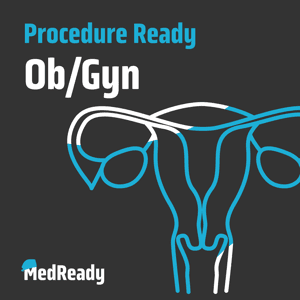In this episode, we will discuss when and how to advise parents on introducing complementary foods (aka “solids”), including foods that are potentially allergenic. This is a topic that will invariably come up for you during your rotation. We’ll discuss the timing and sequence of introducing solids, and then talk about the rationale behind early introduction of potentially allergenic foods.
When to Introduce solid foods
We will start recommending the introduction of solid foods in the form of puree, around the time an infant turns 4-6 months old –
Baby should be able to demonstrate adequate head control in the office with usAn infant’s renal and gastrointestinal systems can only start to metabolize complementary foods around the age of 4 months. An infant will usually develop motor and dental development skills to sufficiently chew and swallow foods around 6 months. Introducing complementary foods too early can be associated with harmful health side effects, e.g., obesity Importance of introducing complementary foods
Breastmilk and infant formula do not contain all the nutrients a growing infant will need to continue growing and developing appropriately. LEAP study – babies less likely to develop peanut allergy if peanut products were introduced at 4-11 monthsThis study had HUGE implications regarding the introduction of potentially high allergen foods into infant’s diets to reduce the risk of developing a food allergy to them. The introduction of complementary foods
First offer a variety of single-ingredient foods (such as pureed vegetables, fruits, grains and meats), in any order that parents desireIron-fortified cereal is often a good choice as iron stores from mother become depleted by about 4-6 months of age. Recommend only providing 1-2 new foods per day in case the child has an adverse reaction The main calorie source for these infants should still be formula or human milkorImportant foods to avoid include: honey (due to the risk of botulism), cow’s milk (we transition to cow’s milk instead of formula / breastfeeding at age 12 months but not prior. This is because it has a low absorbable iron content which can lead to iron deficiency anemia, and doesn’t have all of the nutritional value that infant’s need from breastmilk/formula), choking hazards (such as whole nuts, grapes, popcorn, etc). Introduction of potentially allergenic foods:
The most common allergenic foods are milk, egg, soy, wheat, fish, shellfish, tree nuts, sesame Start to introduce these foods after the infant has tried and tolerated a few of the non-allergenic complementary foods (this is to make sure that the infant can tolerate non-allergenic foods first and foremost)For children with a history of atopy (or a family hx of atopy) it is recommended to start with a small serving of each of these foods, and then gradually increase the serving size as it is toleratedAvoid cow’s milk in a bottle but instead introduce other cow’s milk based products such as yogurts and cheeseAllergic reactions vs contact dermatitisBowel movements change in color and consistency when solid foods are introducedSummaryDu Toit G, Roberts G, Sayre PH, Bahnson HT, Radulovic S, Santos AF, Brough HA, Phippard D, Basting M, Feeney M, Turcanu V, Sever ML, Gomez Lorenzo M, Plaut M, Lack G; LEAP Study Team. Randomized trial of peanut consumption in infants at risk for peanut allergy. N Engl J Med. 2015 Feb 26;372(9):803-13Elissa M. Abrams, Marcus Shaker, David Stukus, Douglas P. Mack, Matthew Greenhawt; Updates in Food Allergy Prevention in Children. Pediatrics November 2023; 152 (5): e2023062836. 10.1542/peds.2023-062836Victoria X. Soriano, Daniela Ciciulla, Grace Gell, Yichao Wang, Rachel L. Peters, Vicki McWilliam, Shyamali C. Dharmage, Jennifer J. Koplin; Complementary and Allergenic Food Introduction in Infants: An Umbrella Review. Pediatrics February 2023; 151 (2): e2022058380. 10.1542/peds.2022-058380





















